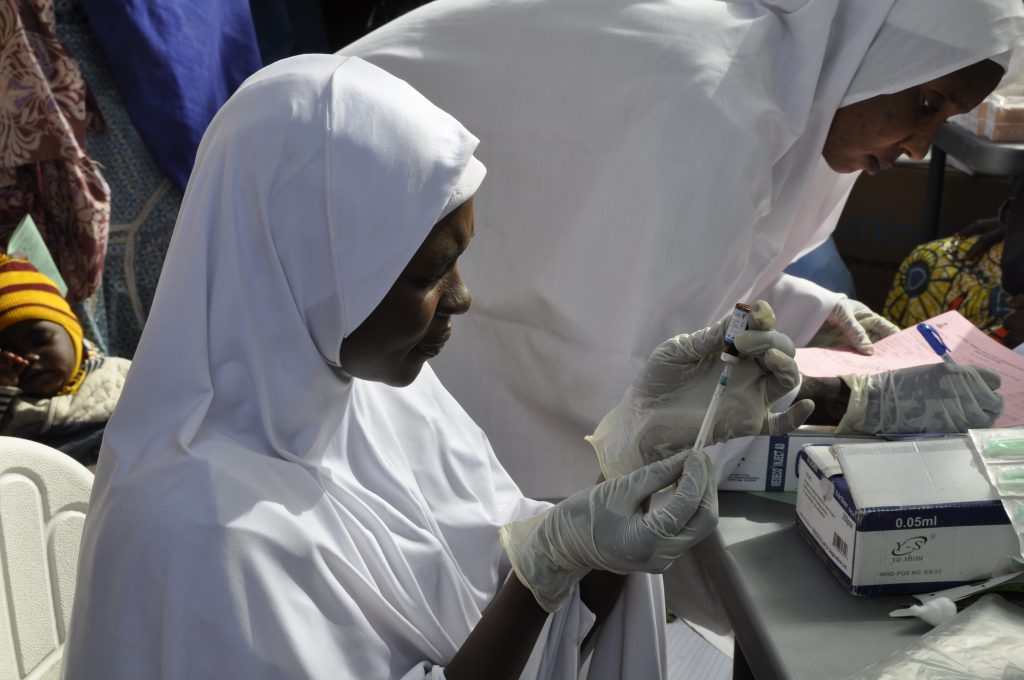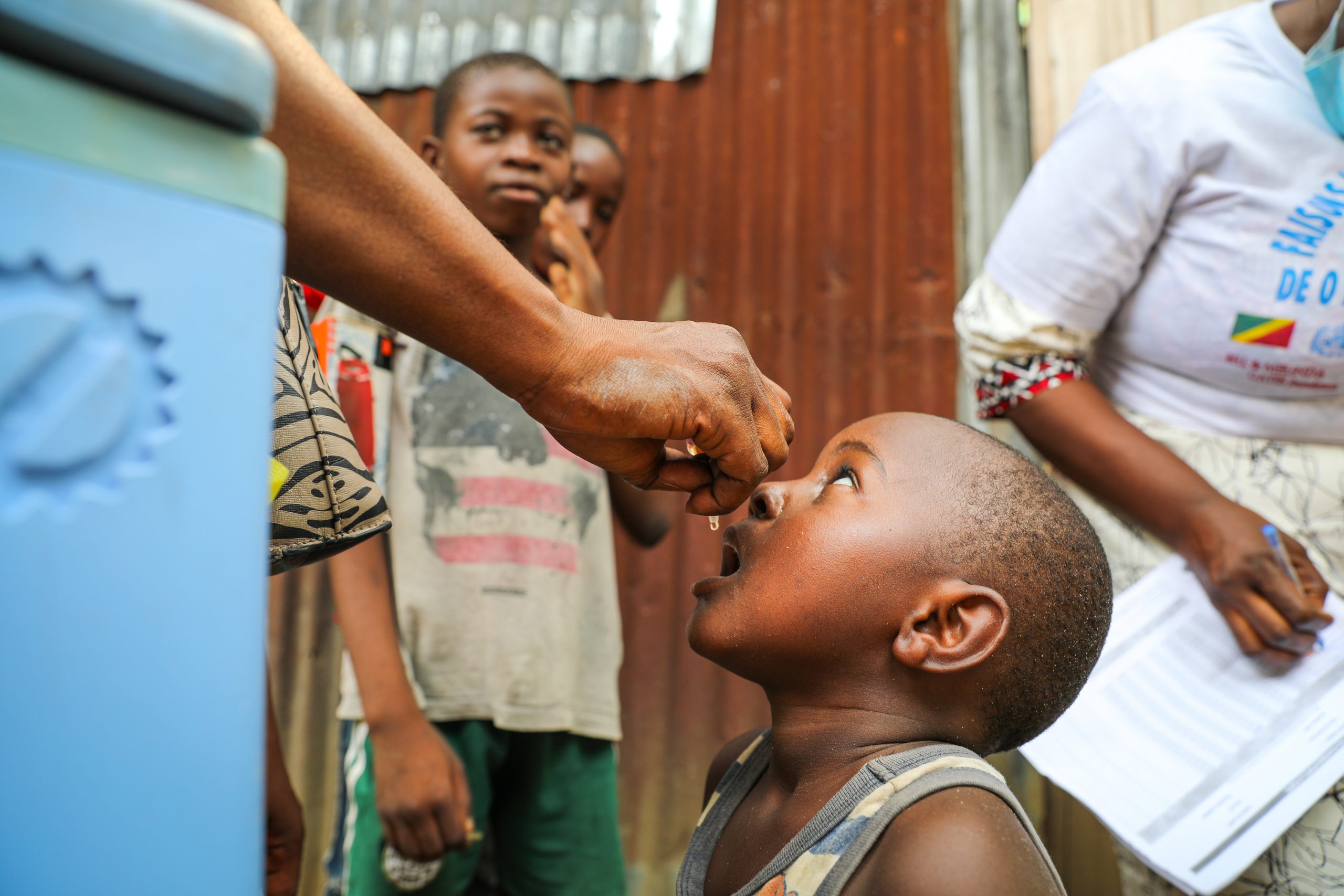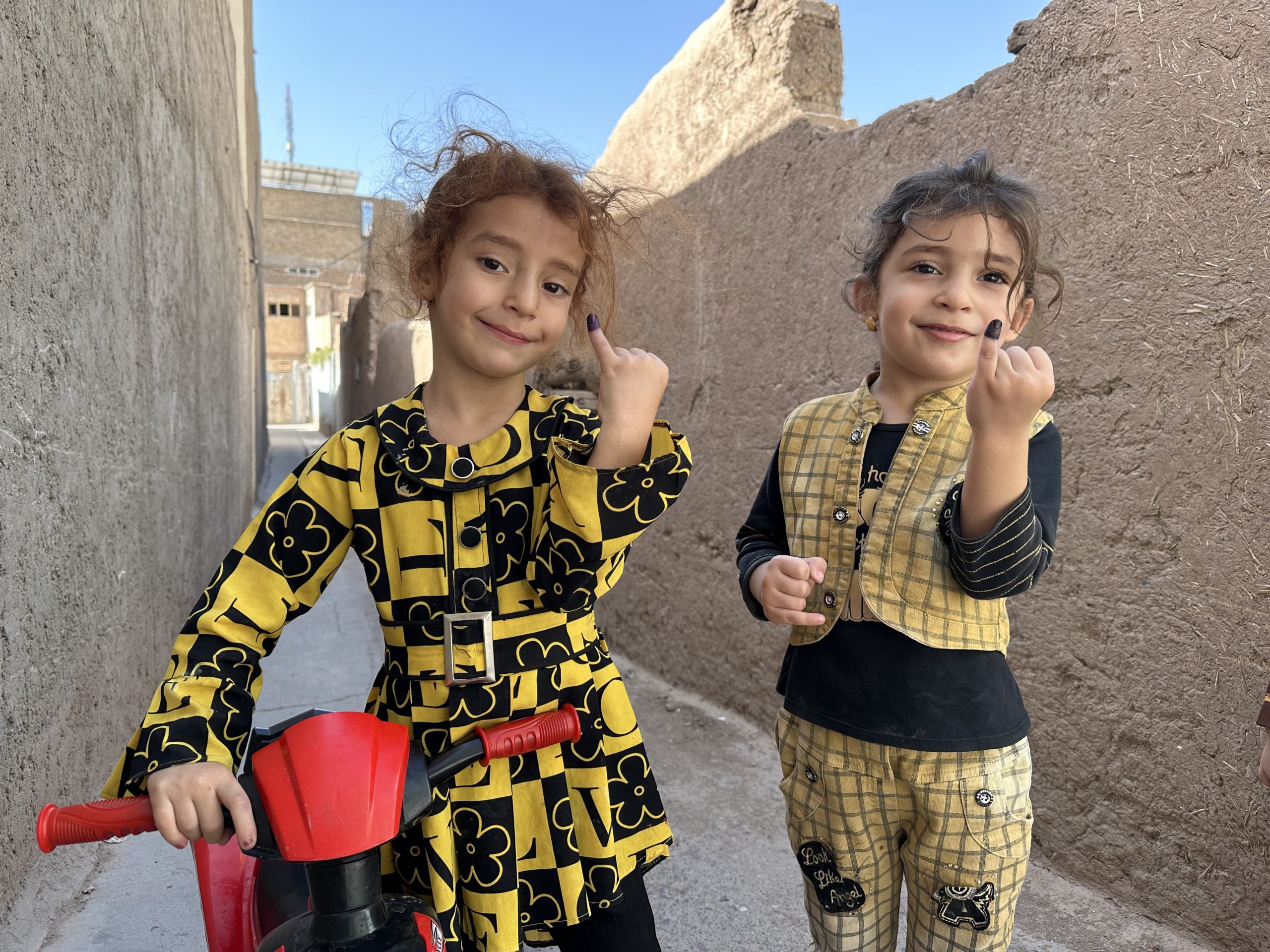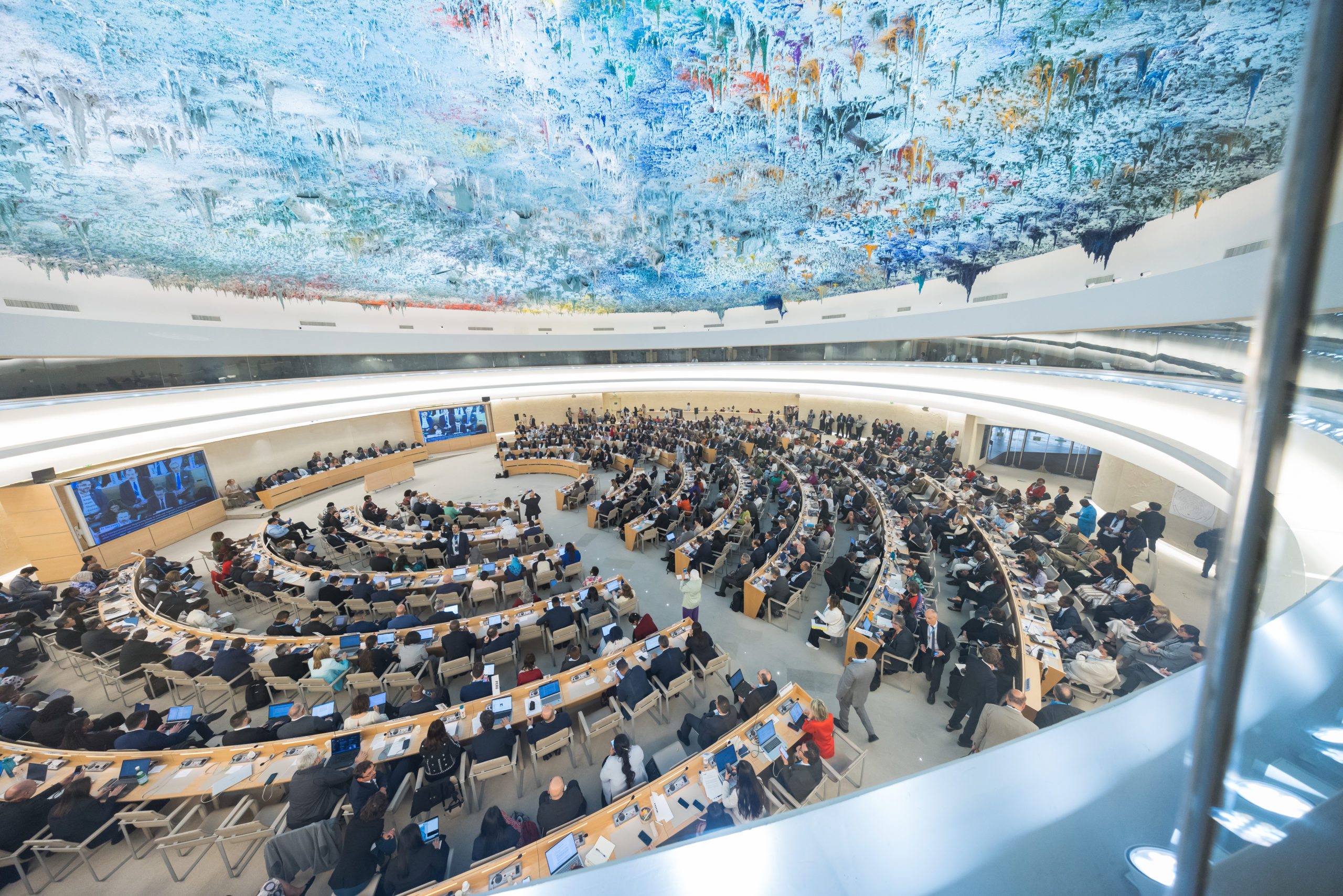
A mass vaccination campaign to protect more than 4 million children from a measles outbreak in conflict-affected states in north-eastern Nigeria started on 13 January. The polio eradication infrastructure has been on hand to help with this feat of logistics. GPEI partners WHO, UNICEF and US Centres for Disease Control have been working with nongovernmental organizations to support the campaign in a range of areas including data management, training, social mobilization, monitoring and evaluation, supportive supervision and waste management.
“Nigeria’s well-established polio vaccination programme provides a strong underpinning for the campaign,” says Dr Wondimagegnehu Alemu, WHO Representative in Nigeria. “Population data from the polio programme has been essential to guide planning for the measles campaign. We are also able to make use of staff that have vast experience in providing health services in very difficult and risky areas.”
One third of more than 700 health facilities in Borno State, north-eastern Nigeria, have been completely destroyed, according to a report released in December by WHO. Of those facilities remaining, one third are not functioning at all. This is leaving the health of communities vulnerable.
WHO has a strong presence in the community in these areas thanks to a well-established polio programme which includes teams of health workers trained to work in areas of high insecurity and reach communities that no other partner can reach.
With levels of malnutrition as high as 20% in some populations in Borno State, children are particularly vulnerable to diseases like measles, malaria, respiratory infections and diarrhoea.
Planning for the future
This measles campaign in northern Nigeria is by no means the only example of polio funded functions and infrastructure contributing to other critical functions. On average, polio-funded staff spend more than 50% of their time on non-polio activities, such as routine immunization, measles campaigns, maternal and child health initiatives, humanitarian emergencies and disease outbreak, sanitation and hygiene programmes and strengthening health systems. In Nigeria in 2015, the Emergency Operations Centres set up to tackle polio were repurposed instantly in response to the spread of Ebola to the country, which enabled the outbreak to be ended almost as soon as it began.
Polio is closer to eradication than it has ever been; and while we keep all efforts on rooting out the virus in its final hiding places, the Global Polio Eradication Initiative is also beginning to plan for the future. The 16 priority countries, including Nigeria, where 95% of the programmes assets are based are planning now so that some polio funded functions and infrastructure can continue to contribute to other critical health and development goals, as polio funding gradually decreases
Read more about the measles vaccination campaign in Nigeria.



